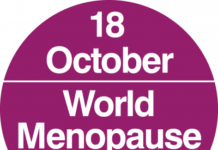Summer is a time of fun, sun and lots of exciting outdoor activities. While many of us may be eager and equipped to head out in the summer sun all day, others, like those battling Alzheimer’s and dementia, may require a little more preparation, hesitation and protection.
According to the Alzheimer’s Association, it’s estimated that more than 6 million Americans are living with Alzheimer’s in 2021. That means that nearly 6 million Americans are battling the daily effects of Alzheimer’s in these hot summer months.
Lisa Skinner, behavioral expert in the field of Alzheimer’s disease and related dementias, highlights the unique effects that hot summertime weather can have on a person battling Alzheimer’s:
“Elderly adults are more prone to heat illnesses than their younger counterparts because when we age, our bodies become less efficient at regulating temperatures. Seniors over 65 don’t sweat as much as younger adults which is an important heat-regulation mechanism. Also, seniors store fat differently, which complicates heat-regulation in the body further. Heat is even more dangerous for those with cognitive decline because they lack the sense of reasoning to take the necessary precautions to protect themselves, especially from dehydration and heat stroke,” says Lisa.
What is Seasonal Affective Disorder and what does it look like in people with Alzheimer’s and Dementia?
“Depression is a very common risk factor for those living with dementia, and the more symptoms of depression that a person with dementia experiences, the more rapid a decline they tend to suffer in thinking and memory skills. Seniors who have dementia are also more prone to suffer from a health condition called SAD (Seasonal Affective Disorder) due to the symptoms and nature of dementia. This disorder is a form of depression that coincides with the seasonal changes that take place to the fall and winter months. The causes are unknown; however, some of the factors that seem to influence seasonal affect disorder include a change in the circadian rhythm as the days grow shorter, a decrease in melatonin levels, a decrease in serotonin levels, and pre-existing health conditions such as dementia.”
“SAD can greatly impact the quality of a person’s life with dementia. Effects include depression, lethargy, fatigue, anxiety, loneliness, difficulty concentrating, moodiness, restlessness and insomnia. Conversely, some people experience overeating, weight gain, as well as oversleeping. All these symptoms are also common to dementia itself, so if you are a caregiver to someone with dementia, it is imperative that you act as a second set of eyes and ears to watch for any concerning changes in behavior that may alert you to a more serious situation arising,” says Lisa.
Here are Lisa’s top 5 tips for caretakers navigating the hot, summer weather while supporting someone with Alzheimer’s or dementia:
TIP #1: Keep elders with dementia out of the direct sun and extremely hot environments
As temperatures rise, their internal body temperatures do too, which is the main reason seniors suffer from heat stroke more than younger people do throughout the summer.
TIP #2: Keep seniors well-hydrated
This is critical to their well-being during hot summer months. Dehydration diminishes one’s ability to regulate temperature; so, the risk of developing a heat illness rises dramatically. For seniors who already struggle to manage internal heat, dehydration can deter the body’s natural cooling process even further. During heat waves, especially, make sure you provide water and juices regularly at every meal, as well as have them sipping fluids throughout the day rather than drinking them quickly. Providing ice chips and drinks containing electrolytes are popular choices for people with dementia. Also, avoid alcohol.
TIP #3: Be mindful of these lifestyle and health factors that increase the risk of developing heat-related illnesses
Some common heat-related illnesses among the elderly may include 1) Dehydration; 2) Chronic illnesses such as heart and kidney diseases, and blood circulation conditions; 3) Prescription medications that reduce sweating; 4) Salt-restricted diets; 5) Overdressing. People with dementia have a tendency to layer their clothing… So make sure their clothing is appropriate for the current temperature in their environment; and lastly 6) Lack of airflow or access to air-conditioning.
TIP #4: Watch for signs of heat exhaustion, which may precede the more serious heat stroke
Heat exhaustion symptoms include excessive sweating, tiredness, weakness, dizziness, headache and muscle cramps. As exhaustion progresses, symptoms may progress to nausea, vomiting, and fainting. Heat stroke can set in quickly, within 10-15 minutes. The symptoms of heat stroke include extremely high body temperature, the absence of sweating, confusion, seizure and coma. It is especially important to look for signs of distress or noticeable changes in people with dementia, since they most likely will not be able to communicate many of these symptoms to you.
Here are a few things you can do to help someone who is suffering from heat stroke symptoms:
- Have the person lie down in a cool place, and if you can, put a fan directly on that person.
- Take steps to lower their body temperature; air-conditioning, cool fluids, and/or providing access to a cool bath or sponge bath will also help.
- Always seek proper medical attention.
Help keep news FREE for our readers
Supporting your local community newspaper/online news outlet is crucial now more than ever. If you believe in independent journalism, then consider making a valuable contribution by making a one-time or monthly donation. We operate in rural areas where providing unbiased news can be challenging. Read More About Supporting The West Wales Chronicle


























